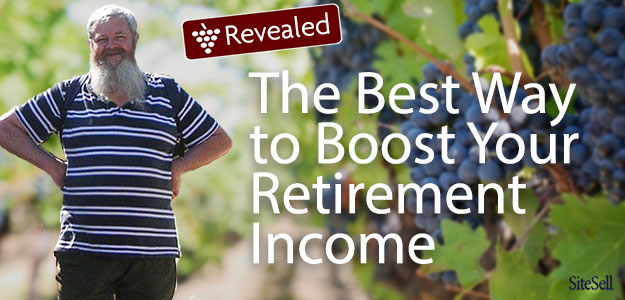My main reward is intrinsic, rather than monetary. However, it earns me an income to supplement my retirement pension.Darby from vinodiversity.com
Darby Higgs enjoys trying new things. Throughout his professional life he had quite a few different careers, from school teacher to political adviser to information manager at a think tank. Good for him, because without this eagerness for new challenges, he may have never discovered the very best way to supplement his retirement income.
Luckily Darby has a curious mind, a palate for good wine and a passion for travel. Let’s see how he combined these traits into a part-time retirement business.
1. Tell us a little about yourself, about your professional background, and how and why you decided to start your online business with SBI!.
I was born in Melbourne and have spent about half of my life in this beautiful city. My family moved to the country when I was very young and I came back to Melbourne for university. I then spent another decade in the country before moving back to the city.
I have had several careers, first as a school teacher in country high schools. Then I returned to Melbourne to work as a political adviser and later as a librarian and information manager at a university think tank.
I was building databases and websites at my last paid job; so I stumbled across SBI! when I was looking for ways to optimise my employer’s website. By that time I was interested in scaling down my career and pursuing some of my other interests, notably travel. I needed a source of income and a structure for my pursuits so I started thinking along the lines of “find something you like doing and then find someone to pay you to do it.”
2. What were your initial goals when you started vinodiversity.com? Have those goals changed over time?
Although I had no involvement in the wine industry other than as a consumer, I saw that the Australian wine industry was going through an exciting new phase. I wanted to contribute to the changes.
This basic motivation hasn’t changed much over the past decade; I still want reasonable income to supplement my retirement pension. But the real reason why I keep going is that I love dealing with the producers, marketers and passionate consumers in my wine niche.
- You can start your solopreneur career as a side hustle. That’s what some of our successful retirees have done, like Carl Trent, the “Disney Dad” and John Shank, the “Shedking.”
- You help people with your skills and knowledge rather than letting it go to waste. Just think about how much you’ve learned, either in your profession or by pursuing a hobby. There are certain to be enough people out there who’d love to tap into that knowledge of yours!
- You’re in control. You work as much or as little you as want, when you want and where you want.
- You can take your business with you. That’s a biggie, if traveling is part of your retirement dream. As long as there’s Internet and power, you can earn with your online business.
- You get to know new people and make new friends. This may even become your main reason why you keep building your business, just as Darby said above.
- You learn something new. It keeps your mind and body young and prevents boredom in retirement.
3. Tell us about your philosophy regarding content. How do you know what your prospective customers are looking for? Where does this information come from?
The content of vinodiversity.com is centred around the more unusual wine varieties in Australia. I defined what I thought was a narrow niche to start with. But the area of new wines was changing rapidly. Producers were looking for consumers interested in their products.
Although I used SBI!’s Brainstorm It! tool for some keyword research, I needed to get first-hand information from wine producers, writers and consumers through various print media and by attending wine events. Nowadays there is a constant flow of information from social media. The task is really one of filtering it.
4. After you provide all this valuable and free information, how do you “upgrade” people from being free-content seekers to paying customers?
Translating traffic into income becomes top priority once you have the traffic. I’ve learnt a few things along the way, for example “don’t put all of your eggs in one basket” (what the Action Guide calls “diversification of income streams”) and “you need to keep running or you will go backwards.”
There is some money to be made via AdSense and affiliate marketing and I have had moderate success with these. The problem is that these opportunities are gradually drying up, and in the case of affiliate programs, they can suddenly stop. In other words, it’s exactly what SBI! advises about passive monetization.
The next step is to develop your own products. In my case I have written a book and revised it a couple of times. The fourth edition will be out in 2017.
Darby realized this and took the next step: He created his own digital product, an eBook that he’s published via Smashwords. While writing an eBook requires quite a lot of work upfront, and a different skillset than “just” writing web pages, it’s still more on the passive side of monetization.
To go fully active, and have a higher profit margin, Darby would have to either create his own physical products or sell his services. Or, if he trusts his palate, he could buy the great young vintages and sell them later at a high profit. Cheers!
“Active monetization models” bring higher earnings, but also come with the obligation of customers, suppliers, employees or contractors, etc. You need to manage your business actively and, sooner or later, hire staff or outsource certain tasks to keep your business viable.
Not everyone wants to go this route, and that’s perfectly fine. After all, building a successful business is not really about the money at all. Your business should deliver more meaningful goals than “just money” (Darby calls them “intrinsic rewards”). Sometimes, the lower income of passive monetization is what does the trick.
5. You mentioned that you are moving more into wine tourism as your niche rather than focusing on wine varieties. Is that why you started publishing your digital “EST Wine Tours Magazine”? How did you come up with this idea, and how does it help you with your monetization?
After a longish period in a narrow niche I felt I had more to offer, albeit in a related niche. As part of my research, and also for my own pleasure, I do quite a lot of Wine Country touring, both in Australia and in Europe.
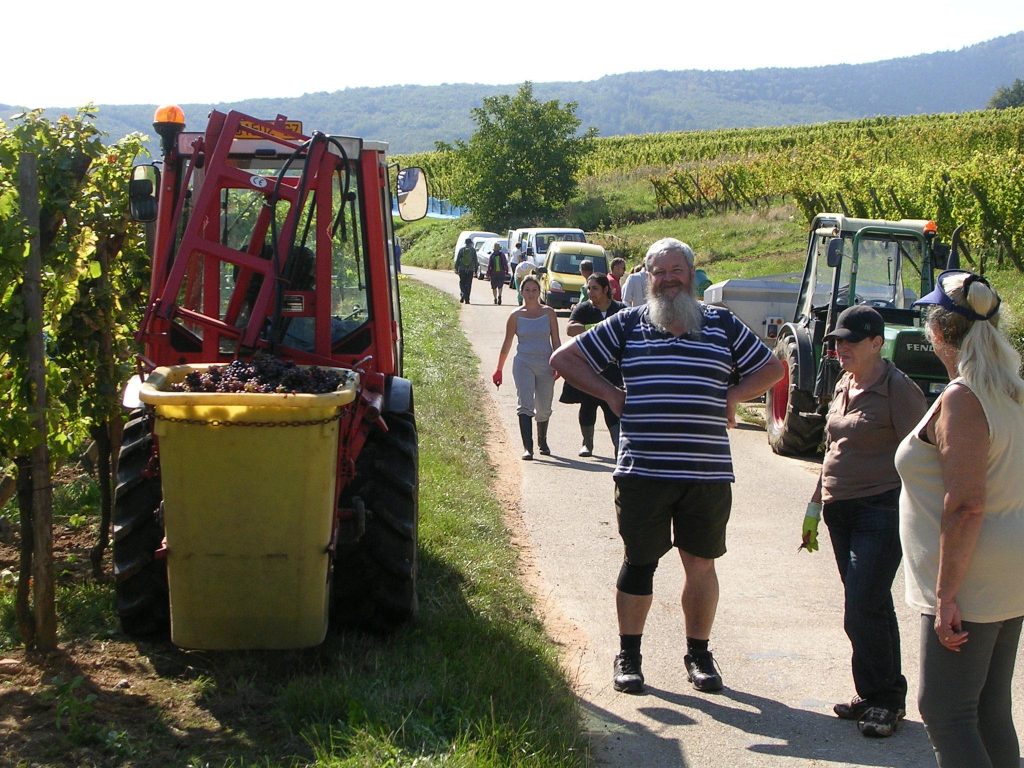
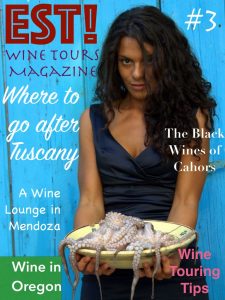
I decided that I would do this in another format other than as a website or blog. So I started publishing EST! Wine Tours Magazine as an iOS app. This gave me the opportunity to move into a new area while leveraging my Vinodiversity visitors. The magazine is free. I hope to make more from it by direct advertising later once I get a large enough subscriber base.
By publishing on a non-www platform I am able to use material from my own website and blog without running into duplicate content problems with Google. I also use, with the author’s permission, material from other websites and blogs, so my role is curator/editor/publisher rather than author for some of the material in the magazine.
Thus far, the magazine is returning a small amount via affiliate programs.
6. How long did it take to start earning an income from your online business? Is it a full-time income (replaces a job) or a part-time income?
I started earning a trickle of income fairly soon after I launched Vinodiversity, from some affiliate programs and a little later from Adsense. I have had some success with affiliate programs but most of the programs I joined were discontinued after a couple of years. I have made a steady income from importing and selling wine-related products via my website, and from book sales.
I was working on the site part time for the first couple of years as I moved from full-time paid employment to part-time and on to “retirement.”
Vinodiversity is my hobby, if not to say obsession, and I suppose I put in enough hours to make it a full-time job. My main reward is intrinsic, rather than monetary. However, it earns me an income to supplement my retirement pension.
7. What about social content? Which social media networks do you use the most, and why?
Wine is usually consumed in a social context and wine lovers love to talk, so social media is important. I have managed to build a reasonable following on Twitter, I use Facebook a bit and lately I have been developing a presence on Instagram. I think Instagram is best for putting yourself in front of new audiences if you use hashtags intelligently.
I also use LinkedIn and Pinterest. The most important thing about all of these networks is to treat them as an introduction service.
There is no point in having thousands of followers if you don't interact with them.Click To TweetYou introduce yourself and your business to visitors, you interact with them, you ask them what they want or need. Think about going to a real world event… you wouldn’t bombard a person you’ve just met with your sales message, would you? You’d talk to them, you’d show interest in who they are and why they are there; in short, you’d strive to make a good first impression.
Do the same on your social networks. Strive for the highest quality with each and every post or tweet. Your collective “body of work” is what drives your growth on social media.
Darby’s also spot on with his remarks about Instagram. From all the major social networks out there, Instagram is the most winnable one due to its hashtag rule. Hashtags are to social media what keywords are to search engines. They are how people discover you.
What’s so special about Instagram’s hashtag rule?
- Hashtags do get found and bring targeted people to your account!
- You may use up to 30. If you know how, you can cast a big, targeted net.
8. What do you find most challenging about being a “solopreneur,” and how do you deal with that?
As an introvert, it is just too easy to sit in front of a screen all day, all week… So it’s important to get out as often as possible. I visit wineries regularly and try to get to many trade shows, wine and food festivals and related events.
In addition, I go to non-wine events as well, such as football, hiking, film, music, theatre and art galleries.
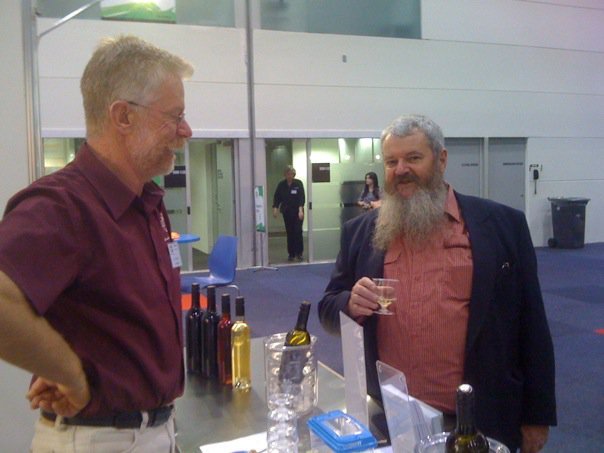
Attending events and activities, whether business-related or not, is one great way of beating “cabin fever.” For more tips, check out our ultimate list of work from home tips.
9. On the flip side… What do you enjoy most about being an online business owner? How has it changed you, your life, your family?
The most important thing about my life since I stopped working for a salary is that I am free to set my own schedule. I don’t need to deal with difficult people. Most of the people in the wine industry are friendly, easy going, talented and generous. I don’t need to be nice to or put up with people just because of financial pressures.
I now have a network of new friends throughout Australia and overseas, most of whom are in the wine industry in some capacity. I have a commercial relationship with just a few of them.
With a small amount of attention to scheduling I can do whatever I want, whenever I want, and “work” is something I just enjoy doing. No stress. I can give family and personal calls the priority they deserve.
Key Take Home Points
- Start your solopreneur career as a side hustle, while you’re still working at your regular job. Building an online business, and earning money with it, takes time. When you start it only after you retire, you’ll put a lot of pressure on yourself to make it profitable within a short time. And more pressure is the last thing you want to have in your “golden years.”
- Evolve with your business. When you realize that one monetization method doesn’t work as well as it used to, look for alternatives. When you see a new trend develop in your niche, see it as a chance to expand your business rather than as a threat.
- Be proactive about the potential downsides of working from home (e.g., social isolation, sitting in front of your computer for too long). Your online business may even provide you with the perfect opportunities to get yourself “out there” and meet new people; opportunities you wouldn’t have had otherwise in your retirement.
Ready to start your solopreneur career as a side hustle? SBI! is here to help!
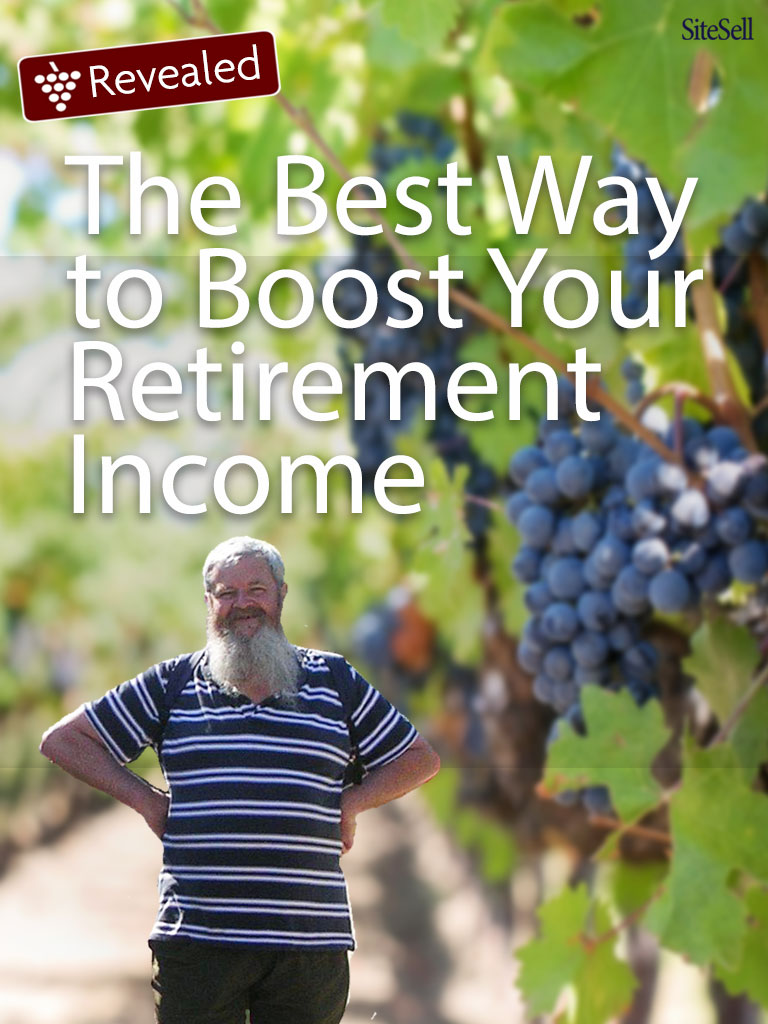
Latest posts by Margit Streifeneder (see all)
- From Zero to 1 Million Fans: A Community-Driven Success Story - October 16, 2025
- Six Figures on Her Terms: A Lifestyle Business Success Story - September 25, 2025
- From Sheds to Sales: A 20-Year Digital Product Success Story - September 11, 2025


